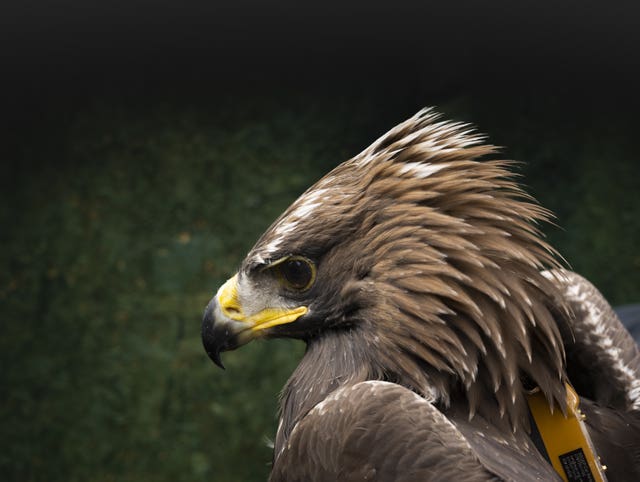
Experts have warned that bird flu “may threaten the very survival of some species” in Scotland.
The study, which looked at avian flu in wild birds, found long-term conservation measures will be the most effective tool against the virus.
The NatureScot report, published on Tuesday, analysed the unprecedented avian flu outbreak among wild birds since 2021, providing advice to support the work of Scotland’s avian flu task force.
Alastair MacGugan, a NatureScot wildlife manager, said: “Although there’s no silver bullet to solve this complicated dilemma, this report will be a great help as the task force plan action to reduce the effect of avian flu on Scotland’s important populations of wild birds.
“This is an upmost priority for our partners and ourselves as the geographic scale, range of species of wild birds affected, and severity of impacts, may threaten the very survival of some species.
“We have already stepped up our collaborative monitoring work in Scotland, and will continue to build on the recommendations in this vital report to make sure seabirds in Scotland have the best chance possible to rebound from the effects of this disease.”
The study found the number of wild birds which have been affected by avian flu in Scotland is unclear, as not all dead birds are found or reported.
However, the worst hit species is the population of barnacle geese originating in Svalbard, Norway. The virus was first detected in them in late October 2021 as they wintered in the Solway Firth region.

By the end of that winter, estimates suggest 13,200 of the geese – about a third of the migrating population – had been killed by the virus.
Barnacle geese originating from Greenland have been the most affected wild birds this year with 1,190 deaths from the virus recorded and local population counts suggesting actual losses of at least 5,000 birds.
Other species hit by avian flu include raptors such as golden eagles and buzzards, as well as seabirds such as herring gulls and gannets.
The report highlighted that bird flu will continue to be an issue for wild birds into the 2023 nesting season and beyond.
It found the most effective solutions will likely be long-term conservation measures for species which are particularly susceptible, accompanied by enhanced disease surveillance, monitoring, and continued research.
The study also looked at the effectiveness and benefits of short-term measures and found once bird flu is present in the wild bird population, it is difficult to control.
Measures such as carcass removal or reducing human activity across sites are unlikely to significantly reduce the impact of an outbreak on wild birds.
Professor Dan Haydon, population ecologist at the University of Glasgow, said the report was an “important and timely” piece of work to protect the seabird population.
He said: “We were pleased to be able to collaborate with a range of experts and advise on the route we need to take to better understand this avian flu outbreak and help manage seabirds into the future.”


Why are you making commenting on The Herald only available to subscribers?
It should have been a safe space for informed debate, somewhere for readers to discuss issues around the biggest stories of the day, but all too often the below the line comments on most websites have become bogged down by off-topic discussions and abuse.
heraldscotland.com is tackling this problem by allowing only subscribers to comment.
We are doing this to improve the experience for our loyal readers and we believe it will reduce the ability of trolls and troublemakers, who occasionally find their way onto our site, to abuse our journalists and readers. We also hope it will help the comments section fulfil its promise as a part of Scotland's conversation with itself.
We are lucky at The Herald. We are read by an informed, educated readership who can add their knowledge and insights to our stories.
That is invaluable.
We are making the subscriber-only change to support our valued readers, who tell us they don't want the site cluttered up with irrelevant comments, untruths and abuse.
In the past, the journalist’s job was to collect and distribute information to the audience. Technology means that readers can shape a discussion. We look forward to hearing from you on heraldscotland.com
Comments & Moderation
Readers’ comments: You are personally liable for the content of any comments you upload to this website, so please act responsibly. We do not pre-moderate or monitor readers’ comments appearing on our websites, but we do post-moderate in response to complaints we receive or otherwise when a potential problem comes to our attention. You can make a complaint by using the ‘report this post’ link . We may then apply our discretion under the user terms to amend or delete comments.
Post moderation is undertaken full-time 9am-6pm on weekdays, and on a part-time basis outwith those hours.
Read the rules here